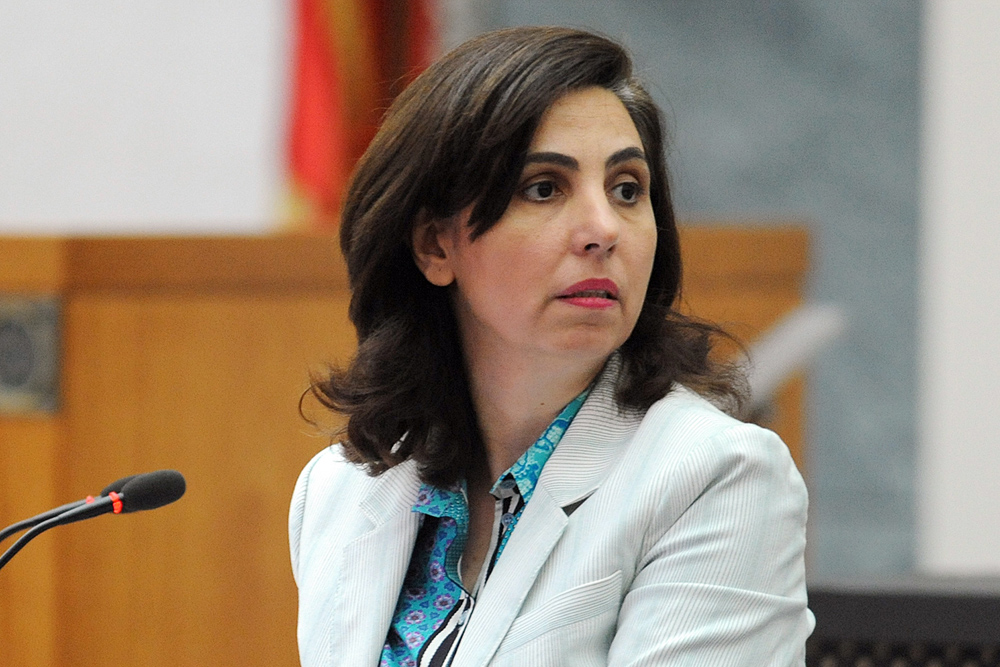
| ESCWA Executive Secretary Rola Dashti reiterated her call for considering the humanitarian, development and peace nexus as a foundation for all interventions, especially in countries affected by chronic conflict |
| BEIRUT, Lebanon, Arab least developed countries (LDCs) members of the United Nations Economic and Social Commission for Western Asia (ESCWA), namely Mauritania, Somalia, the Sudan and Yemen, have been facing dire economic challenges, instability and bleak growth prospects. The situation was exacerbated in 2020 by the spread of the COVID-19 pandemic. Conflicts have caused massive displacement, leaving these countries with heavy burdens and people in dire need of humanitarian assistance. These are a few of the key highlights of a new report issued today by ESCWA in partnership with the Saudi Development and Reconstruction Program for Yemen (SDRPY) on “The Arab LDCs: Development Challenges and Opportunities”. According to the report, growth rates in all four countries have declined significantly during the past decade. Gross national income per capita has been dropping continuously in Somalia since 2010. Both the Sudan and Yemen have registered significant decreases from the middle of the decade onwards. Similarly, gross domestic product (GDP) growth in Yemen gradually sunk into negativity, with a 50% contraction in real GDP between 2014 and 2020. Growth rates in the Sudan also took a sharp drop in 2019 due to political upheavals during that year. The report indicates as well that the main driver of growth in the four countries, though weak, is private consumption followed by government consumption, and the elements that would usually create significant economic development, such as private investment, have not played any significant role in economic growth. Against this backdrop, ESCWA Executive Secretary Rola Dashti reiterated her call for considering the humanitarian, development and peace nexus as a foundation for all interventions, especially in countries affected by chronic conflict. “The need for emergency humanitarian aid is unarguable; however, it must be provided within a long-term sustainable framework, leading directly and rapidly to development investments and thus contributing to peace,” she said. She also pointed out that priority must be given to ending conflict to mitigate increasing humanitarian needs and limit implications for public institutions and infrastructure. “Prolonged aid dependency must be reversed, and security, humanitarian and development agendas must reinforce one another during the pre-and post-peace phases,” she concluded. For his part, SDRPY General Supervisor and Saudi Ambassador to Yemen, Mohammed bin Saeed Al-Jabir, shared that SDRPY’s partnership with ESCWA was a fruitful one. On the collaboration, Al-Jabir added that this partnership resulted in the present policy paper and report which highlighted the progress made by Arab LDCs during the 2011-2020 decade. The report and its outcome would contribute to and further develop a comprehensive and effective regional plan that would gradually assist countries identified as LDCs exiting this group by the next decade. Furthermore, the report may assist donors in contributing to the activation of the triple-nexus approach employed in circumstances of vulnerability and conflict, which would support national institutions and governance systems to respond to and resolve humanitarian crises in ways that establish sustainable development and achieve peace, as well as dedicate all efforts in various areas to supporting these nations and, in particular, Yemen and its brotherly people. The report recommends that interventions to support Arab LDCs should be carried out within a vision aimed at linking important and necessary humanitarian work on the one hand and achieving development and peace on the other. This report is the key document for an ESCWA-led regional review of the implementation of the previous agenda adopted at the Fourth LDCs Conference in 2011, as well as the preparatory process for the fifth Conference to be held in Doha in January 2022. Moreover, the report is one of the outcomes of the partnership agreement that was signed over a year ago by ESCWA and SDRPY to support Arab LDCs through studies and research aimed at developing recommendations to combat poverty and achieve Global Goals, and ultimately improve living conditions in Arab LDCs through effective development contributions. |
